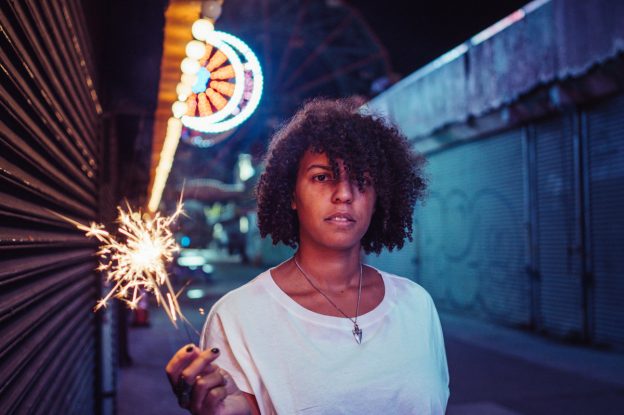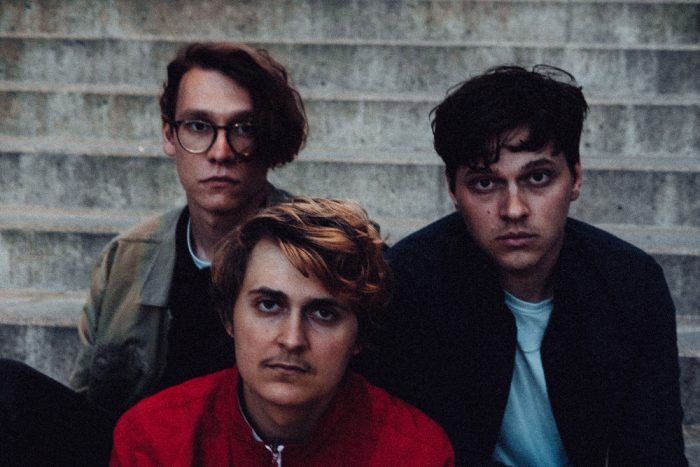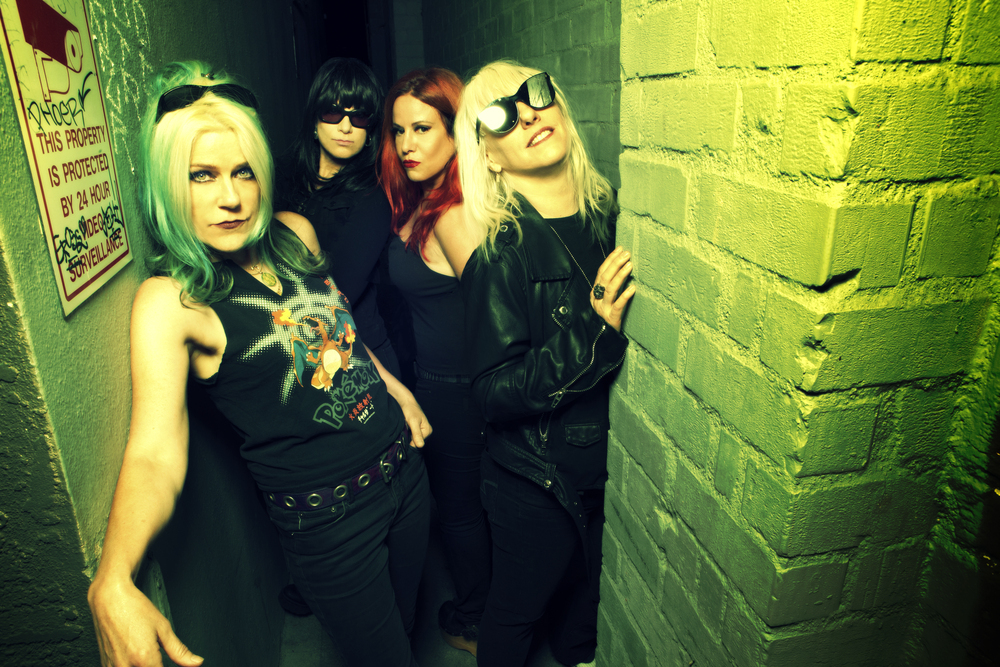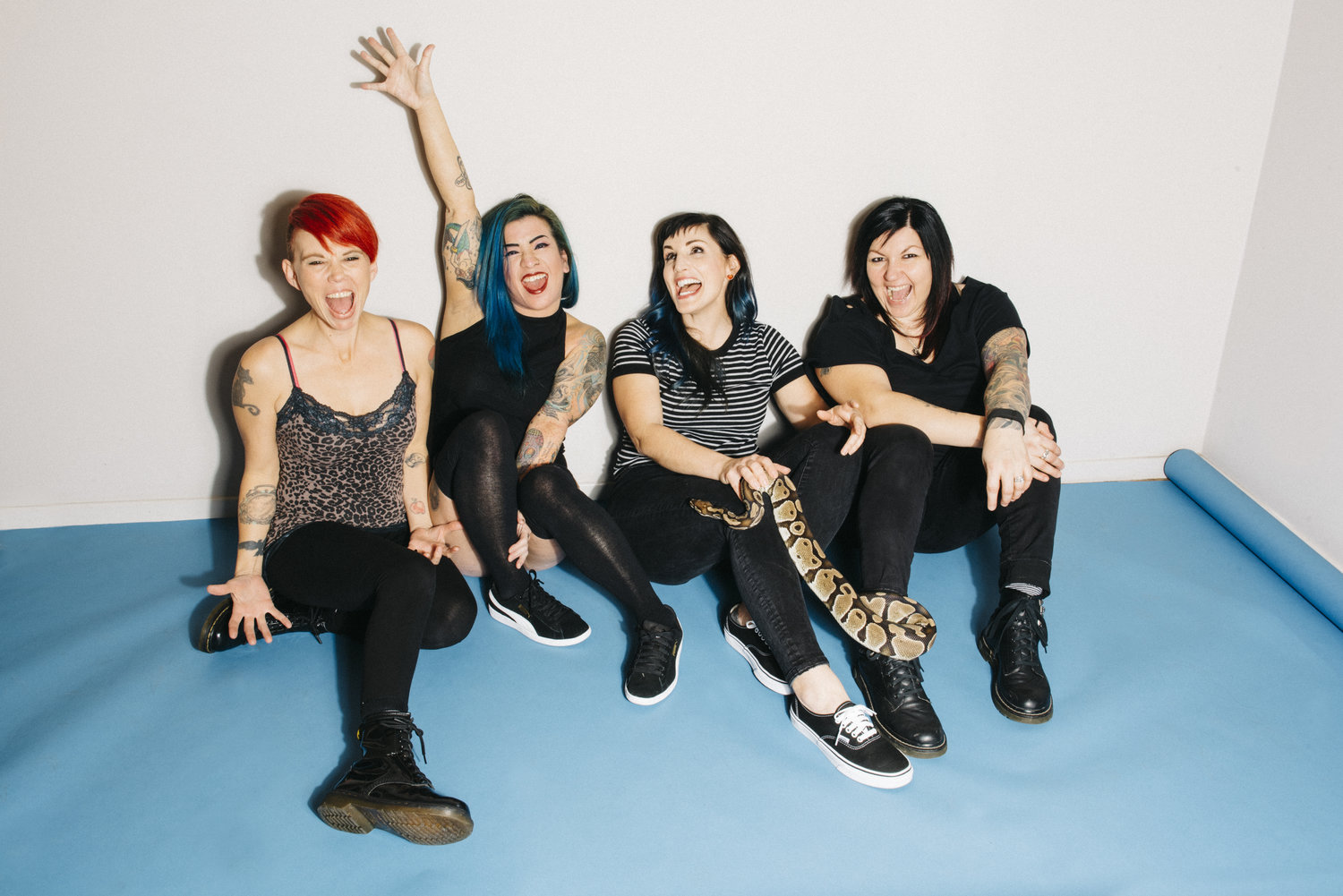Oceanator is New York-based musician Elise Okusami’s solo indie rock project who released their debut LP Things I Never Said on Big Scary Monsters in August of 2020. Radio Radius‘ Milo Schärer met with Elise by Zoom to discuss Things I Never Said and Oceanator’s upcoming livestream shows.
Milo Schärer: Thank you so much for taking the time to do this interview with Radio Radius!
Elise Okusami: Yeah, sure. Thank you so much for having me, thank you for reaching out.
First, we’re going to talk a bit about the album you released last year, Things I Never Said, which was definitely one of my favorites last year, so congratulations on a great release.
Thank you so much!
What was it like for you to release you debut album with the whole situation of not being able to tour behind it and everything else?
It was weird. We had a lot of talks before deciding to go ahead and release it about whether we should push it back until we would be able to tour, but it was supposed to come out in 2019 and then there had been some stuff going on and I didn’t want to sit on it any longer, so we just went for it. It was definitely strange to be talking about it and seeing people’s reactions just completely online from the computer, and not be in a room with people and playing the songs for them and seeing and feeling that reaction. It was overall a good experience, just much different.
Well, I’m glad to hear it was still a good experience despite the obvious difficulties. You released the first single, A Crack in the World, for the album in June, I think, or something like that.
Yeah, end of June.
Why did you choose that song as the first single?
I thought that it was a good introduction to the record and the sound and the themes of the record. A lot of the songs are kind of about the end of the world and that one is no exception, but it’s also a fun song that kind of grabs you right away. It’s just a good power-pop kind of rock song, so I thought it would be a good one to introduce the record to people with.
Yeah, sure. As you mentioned, it has the theme of the end of the world, as does the second single, I Would Find You, there you have the lyric if the sun never came up tomorrow, how long do you think it would take us to notice. I just wanted to ask what inspired that particular imagery for you.
When I wrote the lyrics to that song I was working in a restaurant. I was doing that up until the pandemic. I would work a lot of super late nights and after work you hang out with your co-workers a little bit, and because our hours were shifted to like 12:00 or 1:00 or whatever, we’d be hanging out until like 2:00 or 3:00. It’s kind of hard to go to sleep right after work, no matter what time that is. So, especially in the winter, we’d sleep until it was already almost getting dark, before having to go into work again. So, I was just kind of thinking about if something terrible happened and the sun wasn’t coming up, would we know that it wasn’t…
Ok, interesting to know. Could you maybe repeat the last bit? For me it cut off the last sentence or something that you said.
Sure. Where was I? I was just thinking about how because we were sleeping pretty late, because you know, staying up late, sleeping late, going to work. By the time we were going to work, it was already getting dark outside, so if something happened where the sun wasn’t going to come up, we might not know, because we were sleeping through it anyway.
I’d like to ask you about one more song off the album, because I think it’s my favorite song. Could you tell us a bit about Walk with You?
Sure. It’s funny that that’s your favorite, I’m glad you like that one. That’s kind of the surfy, chill, 50s pop song. The guitar for it just kind of came out really quickly. I was just kind of playing around and that little riff started playing. The rest of it just kind of wrote itself. It’s just kind of about being there for people when you’re having a hard time too and just two people having a hard time trying to help the other one as best they can.
Ok. In addition to your album, you released a few cover songs last, like Fugazi and Dead Kennedys, maybe there are some more. Which one of the covers you released is your favorite and why?
That’s funny, I forgot we even did the Fugazi one, that one was super fun. I think maybe my favorite, my friend Bartees and I did a split singles thing that was a fundraiser that we put out on a Bandcamp day. I did a cover of a Sam Cooke song, A Change Is Gonna Come, and I think that one might be my favorite because I love that song very much and the process of making that little split was super fun. But then probably my second favorite would be the Dead Kennedys one, because that one was just super fun to play and record. I played on the instruments on that, I had a really good time.
I’ll check out the split, because I’m actually not familiar with that one yet.
It’s a Bandcamp-only release, so it wasn’t everywhere.
Sure. Next week you’re going to do a couple of livestream shows, do you want to quickly give us an overview of what they are so that the readers who want to can check that out?
Absolutely. We’re doing seven days, it’s a tour, but we’re all going to be at home. We’re playing every night in a different city, which means we’re going to decorate the stage differently for every show and we’re doing covers. We’re doing two covers each night and Maneka, the band that’s playing before us, is doing some covers every night too, of bands from those cities. We’re just going to try to make every night a little bit different, so it’s fun, and play some new stuff, play some older stuff we don’t usually play and just try to have a good time on the internet pretending we’re on tour. We’re doing little drink specials every night so that people at home are watching can, if they want to, go out and buy whatever the drink special is and pretend we’re all in the venue together. Just trying to make it fun.
Yeah, sure. I watched a few of your other livestreams this year, I think you did some 90s and Green Day cover sets in the spring, and one regular livestream on Bandcamp. Are these upcoming livestreams going to be different from those livestreams that you’ve done so far?
This one is going to be similar to the Bandcamp one that you might have watched. It’s going to be full band, so Tony and Andrew are going to be coming down, negative test results pending, but we’ve all been hiding away so it should be good. They’re going to come down, we’re going to play as a full band, which we’ve only done for the record release show and that Bandcamp stream, so we’ve only done it twice, but now we get to do it seven days in a row. It should be cool. We’re doing it out of my brother’s studio, so the sound should be really nice too. It’s going to be more of a show than the Green Day and 90s cover sets, which is just me popping online and having a good time.
I got my tickets for the shows already, so I’m definitely looking forward to it. My last question is, since I watched one of your Green Day cover sets, if you had to choose, what are your five favorite Green Day songs?
Oh gosh. Ok, Christie Road for sure, off of Kerplunk. There’s so many. Christie Road, I really like Stuart and the Ave., from Insomniac, Redundant, off of Nimrod. What should I pick? Who Wrote Holden Caulfield?, which is on one of the earlier records, and maybe She from Dookie. Those are my top 5, right now, off the top of my head.
All right, nice choices.
Thank you. What are your top 5? Do you like Green Day?
Yeah. I think Redundant and Christie Road would be on my list too. At the Library from the very first album, When I Come Around and One Of My Lies.
One Of My Lies is so good too. Those are good choices too.
Thanks. I guess that’s it for my questions, thanks for taking the time to do this.
Of course. Thank you again, it was cool to hear from someone so far away.




